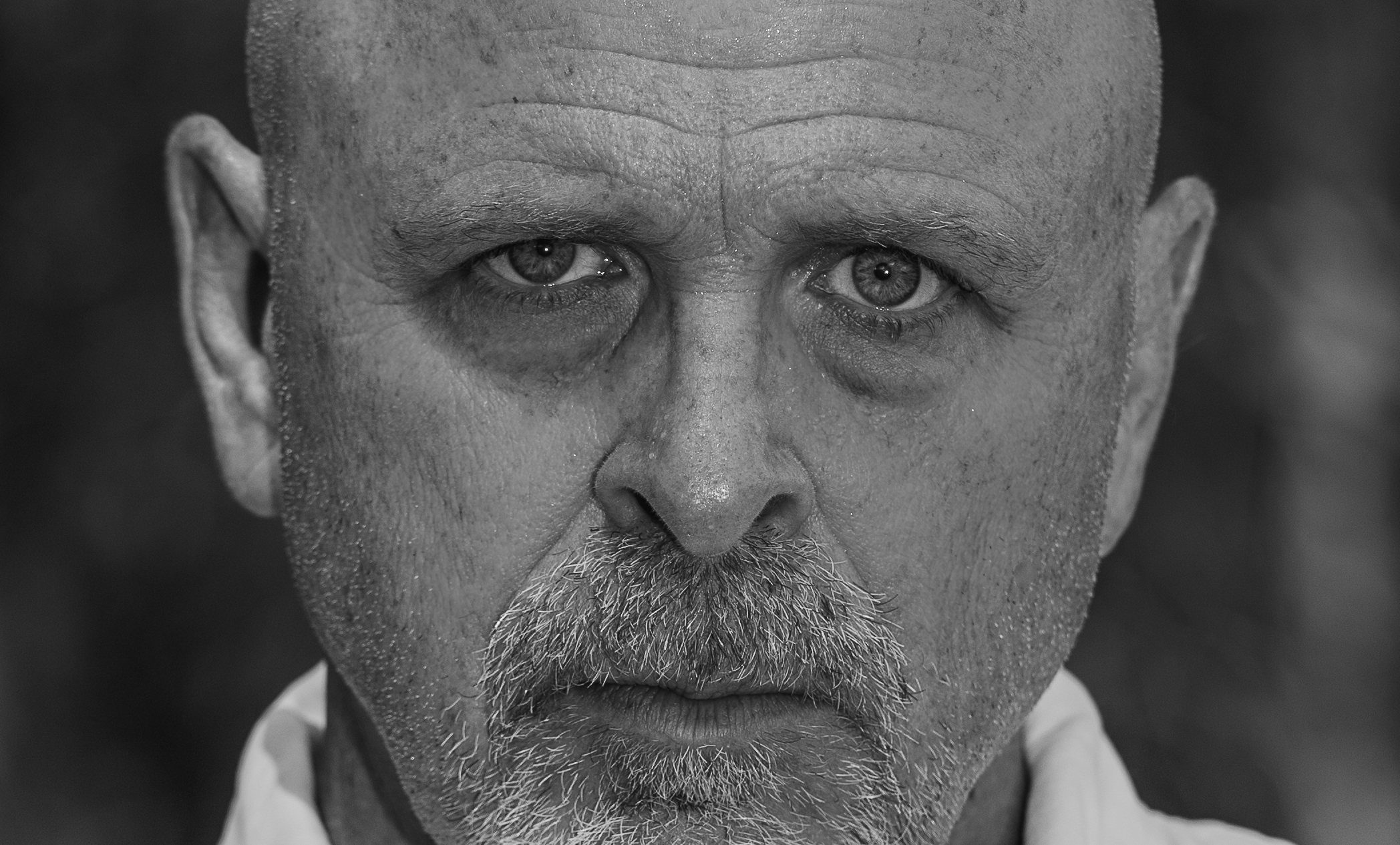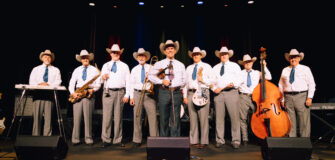
I don’t know what a novelist in the “thrillers” genre is supposed to look like, but after reading the first chapter in each of his three books (where in each case someone is found murdered), I would have expected author Timothy Sojka to look a little more grisly. Instead, I am greeted inside a smartly decorated office by a tall, slim man wearing a tie and pinstripe suit, with salt and pepper hair and a neatly trimmed beard.
As he reaches to shake my hand, I wonder when I am going to see beyond the businessman and get a glimpse into the mind of the award-winning storyteller whose novels are set deep in the Piney Woods of East Texas. When he sits down and starts talking, I pick up on his drawl…and then as he crosses his left leg over the right, the cuff of his pant leg rises just enough to show a mostly-purple multicolored striped sock, and I begin to sense the creative side of him.
I knew at a really young age I wanted to be a writer. I just knew I didn’t want to be a starving author. A lot of successful writers have other jobs. A lot of them are literary. It’s just that my other job is selling about 200 homes per year, plus I do commercial real estate as well. I think we all might like to have a book where we could quit our day job–and honestly, that used to be my goal–but now I just want to write something great.
Well, some people don’t like to get tough feedback, but I love it. I swap with other authors, and there are a couple in particular I really value, because I can be tough on them, and they know they can be tough on me. When I was younger, I couldn’t handle that kind of feedback, but now I can. I know my books are so much better because they were tough on me.
I want to write something that changes the way people think. When I was about 15 or 16, there was a scandal about politicians who were taking bribes; the FBI came in, and they got prosecuted. So, I started thinking, “Man, that’s a great idea. We should be holding our politicians accountable.” Then 30 years goes by and nothing else happens, and that really bothered me. So, I could write a non-fiction book about corruption, but that would be boring. What if, instead, I wrote a thriller about a woman who was really affected by political corruption and then started killing people? I can use the story to talk through more effective ways to deal with corruption – not killing politicians (obviously), but term limits and the like – that is a lot more compelling than writing a non-fiction book about it.
Yes. Like my first book, Payback Jack, deals with the death penalty. It really bothers me the way we handle it in the United States. I can research and write about that, but my opinion doesn’t mean a lot to most people. But if I can write something that really entertains you and presents both sides of the story, then lets you make a decision about it, I have accomplished my goal.
My (writer’s) voice is all about where I come from. All my books are set in East Texas, and they always will be. I feel like I get pulled back to Silsbee like a salmon being pulled back to its breeding ground. I don’t go there in my dreams every day, but I go back there a lot. I think about things and the people there. I know the rhythms of how they talk. Sitting in the living room, with my uncle Raymond Gilmore and my grandparents Myrtis and Selman Gilmore, listening to them talk–that’s how I learned to tell stories and entertain people. It makes you feel differently and think differently when those are your first storytellers.
I love the Georges as storytellers – George Jones and George Strait. I also love the Charlies – Charlie Daniels, Charlie Rich, and (most importantly) Charlie Pride. I mean, the first people to paint pictures in my head weren’t books. Hearing Kiss an Angel Good Morning by Charlie Pride was the first time I remember words painting pictures in my mind. The Devil Went Down to Georgia by Charlie Daniels came out when I was in 6th or 7th grade, and it was the first time I could actually see and understand who the devil was and how he was buying you off. My voice has been shaped more by country music than by the fancy authors I’ve read.
The first death I ever witnessed was there. By the way, you get better food at funerals in small towns than you do at birthdays. So, you were excited to go to a funeral. Sure, you had to sit for a couple of hours and look at dead bodies, but then you got to have everybody’s best cooking! I also love that I’d be at a swimming hole where someone died 15 years ago, or even a week ago, and people would still be sitting around telling the stories. Everything was so dark and romantic.
I wasn’t born in East Texas. I was born in Chicago. But something really rough happened to me when I was six, and I didn’t trust adults. My parents got divorced, and I got shipped to Silsbee, Texas. I started picking up things really young – how people talked and how they acted – so that I could decide whether I could trust them. When you’re young and you can’t trust anyone, you become a storyteller.
We all want our lives to be easy, but in a novel, we all want our characters to go through hell. If you wrote a book where everything went okay for the characters, it’s not going to sell anything. So you want your character to go through holy hell. You have to make their lives as difficult and as tough as possible. And it’s kind of sad, because when you create a character, you really get to know them. You really do. I mean, you spend more time with them than you do anyone else outside of your wife or kids.
To this day, I still really love Smith Driskill from Payback Jack, because he’s the first character I ever saw and felt. And Teeny in Claws, my new book I’m working on now that will come out next year, is my current favorite. She’s an eight-year-old who has gone through some terrible things. She can talk, but she chooses not to. I like that limit. It makes her more interesting, because she can’t say anything. I think the best characters are defined by their limits, not their strengths.
You have to get people off the page. When I read and I see the words in front of me, I hate that. But when I read and I can see pictures in my brain, that’s where I want to be. The best compliment I get is when someone says, “Hey, I read it like it was a movie. It should be a movie. I saw it in my brain.” That’s the greatest. I try to write to people’s senses a lot, as well as to their sense of humor.

Postcards Magazine
936-293-1188
PO Box 690
Huntsville, TX 77342
